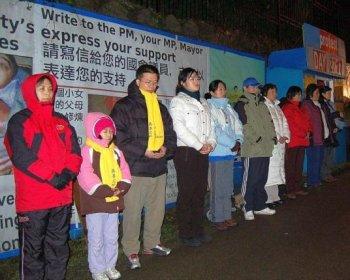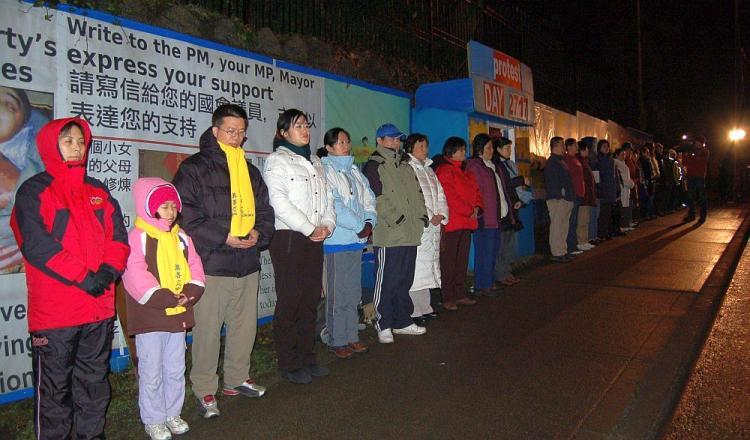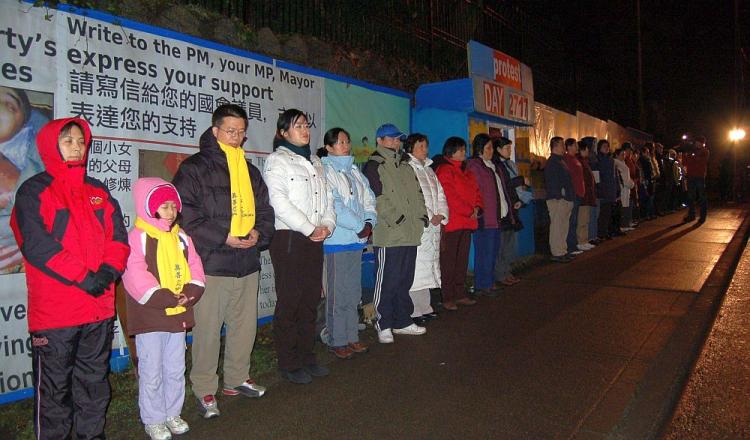Vancouver City Staff Criticized for Consulting Chinese Regime Over Bylaw
That City of Vancouver staff consulted with the Chinese regime over a proposed bylaw has stunned not only some city councillors but also Vancouver’s Falun Gong community.

Falun Gong practitioners stand by the blue hut at the protest site the group maintained outside the Chinese consulate on Granville St. from 2001 to 2009. The Epoch Times
|Updated:

